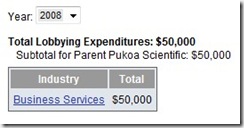Wednesday, April 15, 2009
DBEDT should be examined to decide what should be done with it
by Larry Geller
The Advertiser’s editorial today questions the wisdom of breaking up DBEDT, but there are arguments on both sides that should be weighed. It’s not just a question of dealing with the alleged wrongdoing of the department’s current director. The entire management and expense of Hawaii’s long-running attempt to be a high-tech center of the world should be on the table, as well as DBEDT’s role in handing out corporate welfare. It might be good to throw in the costs of related organizations promoting the high-tech dream to see if and how we should refocus or redesign DBEDT.
Plus there is the “T” for “tourism” that was tacked onto DBED’s name about two decades ago. Perhaps that segment should be cut free to regain the focus it needs as the primary engine of the state’s economy.
The editorial briefly mentions the controversies surrounding the current director, Ted Liu, but in these hard economic times it would pay to put all DBEDT under the magnifying glass. There could be some savings to be realized, and perhaps the state could avoid some layoffs or job cuts elsewhere by trimming fat off the meat at DBEDT.
Act 221, the so-called high technology tax credit, has drawn the most media scrutiny, but that’s just one part of the business development landscape. Not only has the tax credit failed to keep companies in Hawaii, it has failed to develop the medium-tech that high-tech depends on, and has not brought education or work environment considerations into the equation. All that and more should have been part of a comprehensive DBEDT business development plan of which tax credits are but one piece.
 Switching gears, let’s look for a moment at DBEDT’s high-tech incubators. While checking through lobbying expenditure reports for Hawaii companies, I found Pukoa Scientific had spent $50,000 on lobbying in 2008 (2009 reports won’t be in until after April 20). All of this money was paid to Capitol Resources Washington Rep LLC [data from OpenSecrets.org]. It’s not easy to learn what Pukoa Scientific wanted them to do, and there’s no reason to suspect any funny business.
Switching gears, let’s look for a moment at DBEDT’s high-tech incubators. While checking through lobbying expenditure reports for Hawaii companies, I found Pukoa Scientific had spent $50,000 on lobbying in 2008 (2009 reports won’t be in until after April 20). All of this money was paid to Capitol Resources Washington Rep LLC [data from OpenSecrets.org]. It’s not easy to learn what Pukoa Scientific wanted them to do, and there’s no reason to suspect any funny business.
But wait—Pukoa Scientific’s address is listed as 2800 Woodlawn Drive, the Manoa Innovation Center. That’s supposed to be an incubator facility for startups. In other words, the state (DBEDT) subsidizes their rent.
Included in that subsidized rent is also:
… utilities, Internet access, three shared conference rooms, mailbox service, shared office and teleconferencing equipment and parking. [PBN, 7/11/2008].
(the Pacific Business News article says that these are costs they would have to bear if located downtown.)
Another PBN article reports that the company's average salary is over $100,000 and they expected, at the time of publication, contracts totaling $20 million. Heck, those employees can afford to pay their own parking!
Is there something odd about DBEDT subsidizing the rent at the Manoa Innovation Center, supposedly an incubator facility, for a company that pays such a respectable salary and can afford $50,000 in a year for a Washington lobbyist?
More power to Pukoa Scientific and congratulations on their success, but it seems the state is losing money on these folks by offering them cheap digs in an incubator designed for startup companies.
Is this company alone? I just picked them out because I ran into the lobbying report. Your taxpayer money, through the state subsidy, is paying part of the cost of their lobbying. Your taxpayer money is apparently subsidizing their profit (i.e., corporate welfare).
Maybe DBEDT should be charging them (and others?) a fair rent. It’s just one company I’ve discovered, the question is whether DBEDT’s practices should be reviewed or audited prior to a decision on what to do with it.
(DBEDT is not the only state department on the chopping block. It looks very much like the legislature will carve up the Public Utilities Commission and the Department of Commerce and Consumer Affairs and put critical functions under a powerful communications “czar” as I’ve previously written.)
If breaking up DBEDT or reforming Hawaii’s government in other ways will improve regulation and services, we should support it. The challenge is to determine the best way to restructure the administration so it is more likely to do things that benefit the citizens of the state.


Post a Comment
Requiring those Captcha codes at least temporarily, in the hopes that it quells the flood of comment spam I've been receiving.